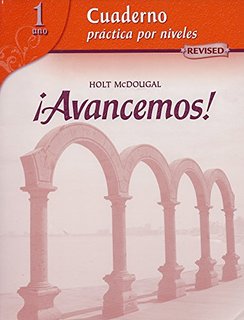
All Solutions
Page 371: Gramatica B
|Singular |Plural |
|–|–|
|Yo **me** |Nosotros **nos** |
|Tú **te** | / |
|Él/Ella/Usted **le** |Ellos/Ellas/Ustedes **les** |
*(I bought my mother some jewelry.)*
*My mother* is third-person singular, so we used the third-person singular pronoun, which is “***le***.”
*(I liked ceramic products.)*
Here, we don’t have anyone else mentioned, so we assumed the person was talking about what he/she liked. That is why we used the pronoun”***me***.”
*(I am bringing my friends some wooden products.)*
*My friends (they)* is third-person plural, so we used the third-person plural pronoun, which is “***les***.”
*(I bought you some very nice souvenirs.)*
Here, we assumed two persons were talking. They used “you” to refer to one another. *Tú (you)* is second-person singular, so we used the second-person singular pronoun, which is “***te***.”
*(Guys bought us some very nice rings.)*
It is not stated clearly, but we assumed the girls were speaking to someone else telling them about the presents they got. The girls were speaking in first-person plural, so we used the first-person plural pronoun, which is “***nos***.”
Here is a table to help you with indirect object pronouns:
|Singular |Plural |
|–|–|
|Yo **me** |Nosotros **nos** |
|Tú **te** | / |
|Él/Ella/Usted **le** |Ellos/Ellas/Ustedes **les** |
*(We are bringing Lucas a horse.)*
*Lucas (he)* is third-person singular, so we used the third-person singular pronoun, which is “***le***.”
*(We are having/making barbecue for all the guys.)*
*All the guys (they)* is third-person plural, so we used the third-person plural pronoun, which is “***les***.”
(Guys are bringing us fruits.)
*Nosotros (we)* is first-person plural, so we used the first-person plural pronoun, which is “***nos***.”
*”(Para nosotros)”* at the end of the sentence is in parenthesis and should be omitted; it is renundant.
*(I buy you something to eat.)*
*Ustedes (you)* is third-person plural, so we used the third-person plural pronoun, which is “***les***.”
*”(Para ustedes)”* at the end of the sentence is in parenthesis and should be omitted; it is renundant.
The point is to use adequate indirect object pronouns in your answers.
Use the sentences below as a reference.
– **Le** digo mis secretos a mi hermana.
*(I tell my secrets to my sister .)*
*My sister (she)* is third-person singular, so we used the appropriate indirect object pronoun, which is *”**le**” (her).*
– **Les** pido regalos de cumpleaños a mis padres.
*(I ask my parents for the birthday presents.)*
*My parents (they)* is third-person plural, so we used the appropriate indirect object pronoun, which is *”**les**” (them).*

